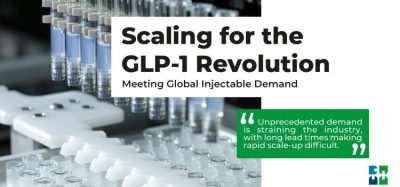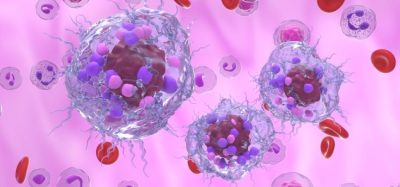Ferring reveals long-term data for cancer gene therapy
Posted: 29 November 2023 | Catherine Eckford (European Pharmaceutical Review) | No comments yet
New data from a Phase III gene therapy trial has demonstrated a 90 percent three-year overall survival rate for its participants with a high-risk bladder cancer.


Following the US Food and Drug Administration (FDA)’s approval of Ferring Pharmaceuticals’ gene therapy Adstiladrin® (nadofaragene firadenovec-vncg) in December 2022, new long-term follow up data has been revealed.
Adstiladrin is the first FDA-approved intravesical gene therapy to be authorised for adults with high-risk Bacillus Calmette-Guérin (BCG)-unresponsive non-muscle invasive bladder cancer (NMIBC) with carcinoma in situ (CIS) with or without papillary tumours.
The non-replicating adenovirus vector-based therapy contains the gene interferon alfa-2b, administered by catheter directly into the bladder once every three months.
New 36-month follow-up data from [Ferring Pharmaceuticals’] Phase III study demonstrated a sustained durability of response [for patients given the gene therapy Adstiladrin]”
New 36-month follow-up data from its Phase III study demonstrated a sustained durability of response with Adstiladrin in this patient population. These findings were presented at the 2023 Annual Meeting of the Society of Urologic Oncology (SUO).
Ferring’s gene therapy: what the data showed
The data showed that at the 36-month mark, a quarter of these patients remained free of high-grade recurrence. A 90 percent three-year overall survival rate was observed in the trial. Additionally, 53.8 percent of patients were cystectomy-free at 36 months.
Data presented at SUO highlighted that the Kaplan-Meier (KM)-estimated probability of duration of complete response (CR) for at least 12, 24 and 36 months was 46.5 percent, 36.6 percent and 34.2 percent, respectively.
The KM-estimated median duration of HG recurrence-free survival was six months, with a 30.1 percent probability of HG recurrence-free survival for at least 12 months.
“These new data continue to build on the body of evidence supporting the efficacy and safety of Adstiladrin, adding to the data on its sustained durable response following treatment,” stated Dr Elizabeth Garner, Chief Scientific Officer, Ferring Pharmaceuticals, U.S. “Adstiladrin is an innovative therapy that we believe will transform the current standard of care for these patients, providing an effective alternative therapy.”
There is a planned five-year treatment and monitoring phase for patients who participated in the Phase III clinical trial for the gene therapy.
Related topics
Anti-Cancer Therapeutics, Biopharmaceuticals, Clinical Development, Clinical Trials, Drug Development, Drug Safety, Gene therapy, Industry Insight, Research & Development (R&D), Therapeutics









